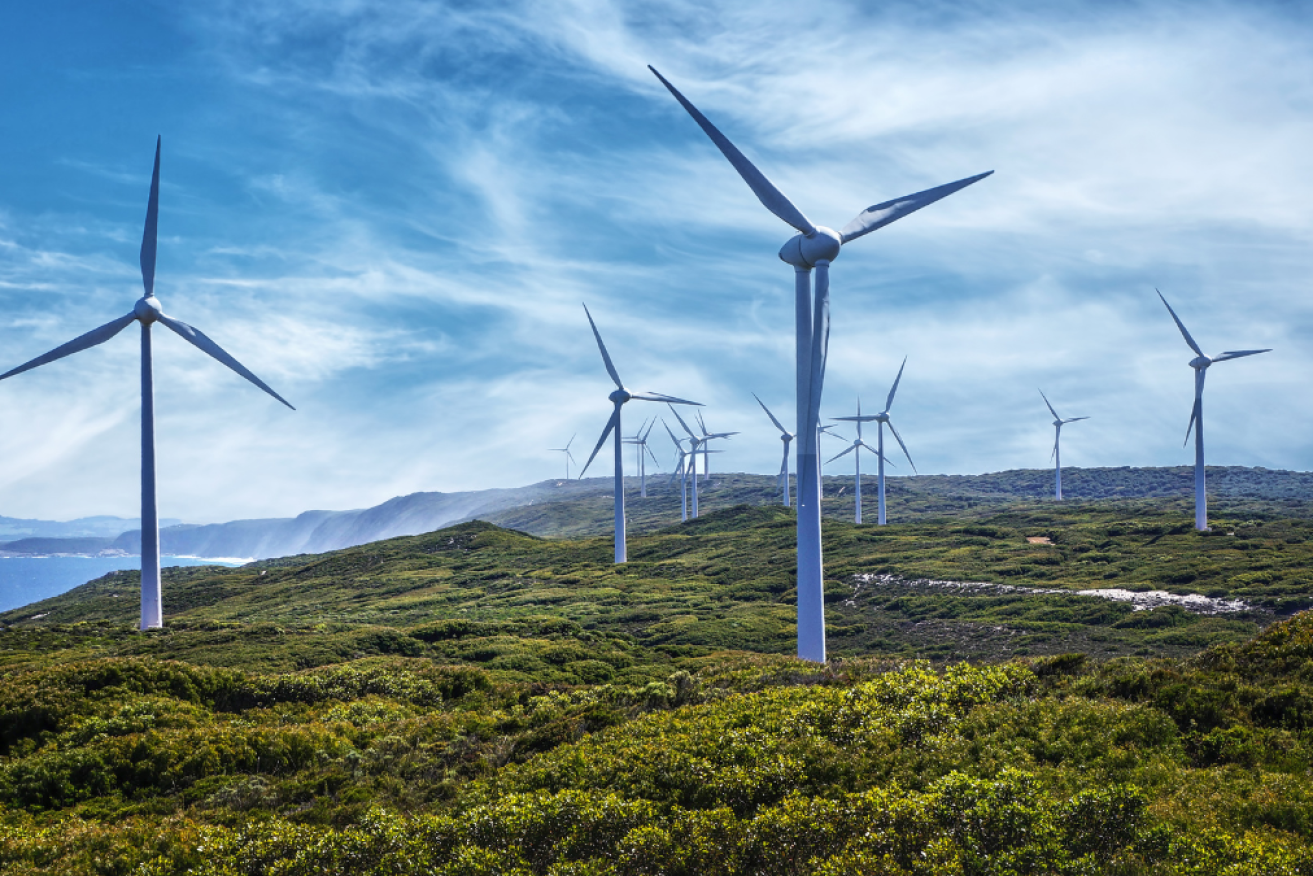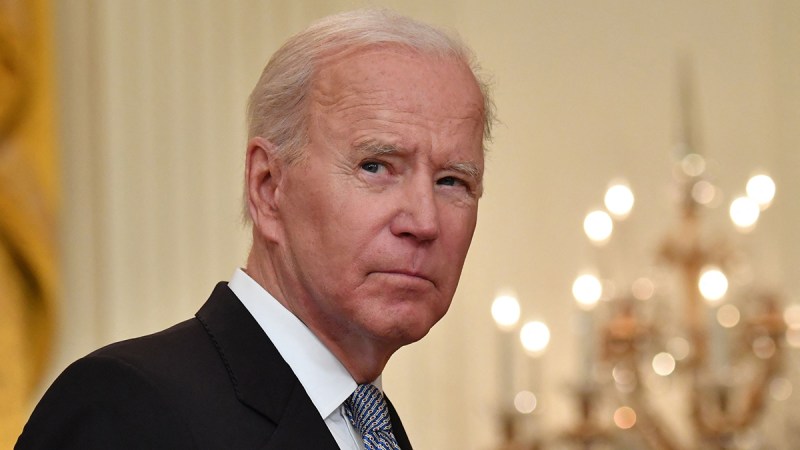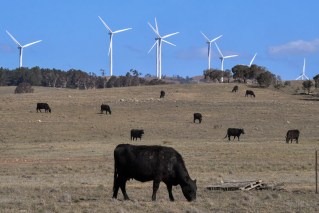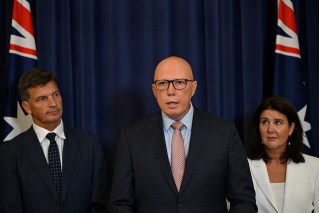Kicking the can down the road: Australia risks missing climate transition opportunities

Australia is being urged to seize the opportunities of decarbonisation. Photo: Getty
Treasurer Jim Chalmers recently announced that the federal government’s much-anticipated package of climate industry policies will be delayed by at least another six months.
He cited concerns over skills shortages and environmental approval wait times before moving ahead with new measures to stimulate renewable energy and related industries in Australia.
The concerns raised by Mr Chalmers are real, and need attention. But the industrial opportunities of the net zero transition will not remain forever. Australia can’t wait for the perfect moment before responding to the rapidly changing global industry conditions – and in particular Joe Biden’s Inflation Reduction Act.
Australia has the natural resources, skilled workforce, and trade capacity to emerge as a renewable energy superpower in the future global net-zero economy. But without public investment, coordination, and – importantly – ambition, Australia will not capitalise on these strengths.
Inaction will relegate Australia to providing only the raw minerals for the world’s net zero transition, once again relying on other countries to process and manufacture those minerals into value-added products and technologies. The opportunities of creating new export industries based on renewable energy, revitalising Australian manufacturing, and leading global decarbonisation will pass us by.
Global race
The Australian government’s anticipated climate-related industry policy package is widely understood as a response to the IRA, President Biden’s flagship climate legislation.
The IRA provides significant new subsidies and tax credits for US clean energy generation and manufacturing, supplemented by strong domestic content rules and union-friendly procurement measures. These programs are predicted to facilitate up to US $1.2 trillion in public funding for sustainable industries, and to drive emissions reductions of approximately 43 per cent.
The IRA has set off a global renewable investment race. In the fifteen months since Biden signed it into law, programs that broadly match its effect have also been announced by the EU, Canada, and Japan. Of course, all these countries are competing with China, which has already established global dominance in clean technology manufacturing through long-term government support and planning.

US President Joe Biden. Photo: Getty
In Australia, unions, business groups, and environmentalists have all called on the federal government to rise to the challenge posed by the IRA. Research presented at the National Manufacturing Summit in August suggested a proportionate policy response from Australia would require federal support of between $83 and $138 billion over ten years.
At the ALP National Conference, the ETU and the AMWU unions proposed an even bigger $152 billion program for manufacturing, renewables, and electrification. Then, in September, a broad coalition of environmentalists, investors, and unions called for a 10-year $100 billion investment in renewable export industries, transmission infrastructure, and electrification.
Earlier the government had signalled its openness to these proposals. The May 2023 federal budget included a commitment to developing a response to the US IRA by the end of 2023, and Prime Minister Albanese reportedly promised the same to President Biden in May. But now the Treasurer has announced a delay, at least until the 2024 federal budget.
Slipping out of reach
Australia is already facing the consequences of this delay. Electric vehicle charger manufacturer Tritium recently announced it will close its Brisbane factory due to poor profitability and a lack of government support, eliminating two hundred jobs. The company will consolidate production in the United States, taking advantage of industrial supports under the IRA.
More clean technology manufacturers could leave Australia if the government does not quickly follow through on its promise to embrace the industrial opportunities of the climate transition.
Meanwhile, clean technology investment continues to flock to the United States. An estimated US$310 billion was invested in clean energy generation and manufacturing projects in just the first year of the IRA, accounting for more than 211,000 new clean energy jobs.
Australia is not the United States – but there is no reason why an Australian climate industry policy cannot proportionately match the ambitions of our major trading partners. Moreover, to establish the long-term certainty necessary for business to invest and workers to train in relevant skills, a climate industry policy framework must be established as soon as possible.
Concerns and opportunities
To be sure, skills shortages and often protracted (but soon-to-be-reformed) environmental approvals processes complicate the development of new clean technology projects. But the repeated delays also reflect the government’s priorities. Even as it postpones Australia’s response to the IRA, the government is advancing other legislation to expand the use of discredited carbon capture and storage systems in new offshore gas projects.
As the climate crisis intensifies, Australia needs to be part of the solution, not the problem. To embrace the economic opportunities of the net-zero transition, a comprehensive renewable industry investment package must not be delayed further. The government needs to quickly finalise and announce a real plan for developing clean energy industries in Australia, driving decarbonisation and rebuilding Australian manufacturing.
They surely know we are running out of time.
Charlie Joyce is Anne Kantor Fellow at the Carmichael Centre in the Australia Institute’s Centre for Future Work, and co-author of Manufacturing the Energy Revolution: Australia’s Position in the Global Race for Sustainable Manufacturing.








